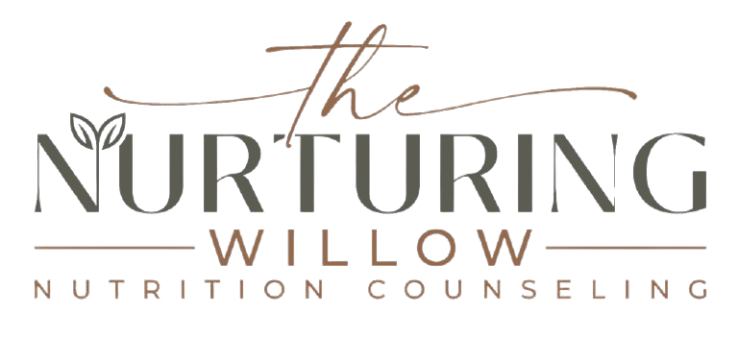Our Specialties
We’re all about helping you feel your best!
Whether you’re navigating an eating disorder, looking for variety, exploring prenatal nutrition, or a single mom trying to balance life with nutritious and affordable meals, our services are here to support your unique journey.
The Role of a Registered Dietitian in Your Health Journey
-
Support for individuals struggling with their relationship with food, body image, and eating behaviors.
Develop meal plans for recovery.
Provide education on balanced nutrition.
Collaborate with therapists and healthcare teams for comprehensive care
-
Type: (Hypertension, Cholesterol, POTS, etc.)
Help improve heart health through diet and lifestyle changes.
Create plans focused on heart-healthy eating (e.g., DASH diet).
Reduce sodium and unhealthy fat intake.
Teach label reading and meal prepping for better choices.
-
Help manage chronic kidney disease (CKD) and dialysis needs.
Develop renal-friendly meal plans with reduced sodium, potassium, and phosphorus.
Provide guidance on fluid balance.
Support protein intake for different CKD stages.
-
Address patterns like chronic dieting, emotional eating, or food guilt.
Help identify and overcome restrictive or harmful behaviors.
Introduce intuitive eating principles.
Build sustainable and enjoyable eating habits.
-
Support busy families in creating nutritious, affordable, and enjoyable meals.
Develop easy-to-follow meal plans tailored to family preferences.
Provide tips for picky eaters and balanced family nutrition.
Simplify meal prep to save time and reduce stress.
-
Support for moms during pregnancy and postpartum recovery.
Ensure adequate intake of nutrients like folate, iron, and calcium.
Address gestational diabetes or weight gain concerns.
Provide breastfeeding nutrition guidance.
-
Guidance for navigating dietary restrictions without sacrificing variety.
Identify safe and enjoyable alternatives for common allergens.
Develop allergen-free meal plans.
Support families with children managing allergies.
-
Address nutrition needs at all stages of life, from hormonal balance to menopause.
Support hormonal health and conditions like PCOS.
Provide nutrition plans for bone health and aging.
Help with preconception and fertility-focused diets.
-
Support for healthy and realistic weight changes tailored to individual goals.
Create personalized nutrition plans.
Teach portion control and mindful eating strategies.
Focus on long-term, sustainable lifestyle changes.
-
Help children develop healthy eating habits and address growth or dietary concerns.
Support picky eaters with balanced and approachable meals.
Ensure proper nutrition for growth and development.
Educate families on creating a positive food environment.
-
Encourage a positive and balanced approach to food.
Teach clients to honor hunger, fullness, and satisfaction cues.
Help reduce emotional or binge eating patterns.
Focus on building a healthy, guilt-free relationship with food
-
Address the link between diet and mental health for improved emotional well-being.
Introduce foods that support brain health and mood stabilization.
Help clients build healthy routines to reduce stress.
Focus on mindful eating and reducing emotional eating triggers.
-
(IBS, Crohn’s, celiac disease)
Help manage symptoms and improve gut health through diet.
Develop low-FODMAP or elimination diets as needed.
Offer strategies to ease digestion and reduce discomfort.
Provide guidance on managing flare-ups or sensitivities.
-
Optimize nutrition for athletes and active individuals.
Develop pre- and post-workout meal plans.
Support hydration and electrolyte balance.
Provide strategies to improve endurance, recovery, and performance.
-
What we help: (Type 1, Type 2, gestational)
Empowering individuals to manage blood sugar levels effectively.
Teach carbohydrate counting and meal planning.
Develop balanced eating patterns to prevent spikes or crashes.
Support weight management and insulin optimization.
-
Supplements can support health, but they’re not one-size-fits-all. A Registered Dietitian (RD) can:
Assess your diet and health to determine if supplements are needed.
Recommend evidence-based, high-quality products.
Ensure safety and avoid harmful interactions or excessive doses.
Prioritize food-first strategies for optimal nutrition.
Get expert, personalized advice from an RD before starting supplements to meet your unique needs safely and effectively.

















